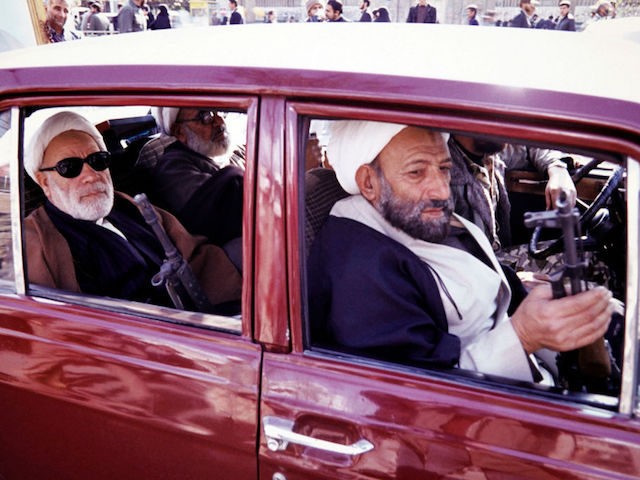The late motivational speaker Jim Rohn offered expert advice on human behavior for decades. An oft-repeated observation made was, “I’ve discovered that you can’t change people. They can change themselves.”
As Donald Trump announces an Iran foreign policy that ignores the first part of “Rohn’s Rule” and banks on the second, it will be “business as usual” for Iran’s mullahs, who continue doing their own “banking.” Theirs, however, is of their country’s wealth — a point in need of being driven home to their people.
Trump makes clear he seeks not “regime change” in Tehran, but behavioral change. We can bank on the latter simply not happening, absent internal or external pressure.
The first is that it conflicts with the country’s constitution. Iran has a constitution unlike any other nation’s, mandating extraterritorial application.
The second reason we will not see a behavioral change is the personal wealth the mullahs have attained. By virtue of the authority they exercise, they have not hesitated to lavish themselves with the nation’s riches. These are religious men who, during the Shah’s time, were riding donkeys, yet today drive around in luxury cars. During the former’s rule, the mullahs lifestyle was basically dictated by the charity of followers’ donations. But today, the state’s treasury is at their personal disposal. Any sense of living a modest and pious life after reaching the pinnacles of power has been left far behind.
Recognizing the importance of the Islamic Revolutionary Guard Corps who help the mullahs stay in power, they share their spoils with that organization. Together, they have stripped the nation of great wealth, leaving the population to suffer. Even little of Obama’s “gift” to Iran – releasing $150 billion in assets after negotiating his heavily one-sided (in Tehran’s favor) nuclear deal – has gone into economic stimulation as the mullahs continue to join the ranks of the world’s richest men.
During his presidency, Obama refrained from calling out the mullahs’ corruption for fear of offending them. As evidenced recently by Secretary of State Mike Pompeo’s comments, Trump does not hesitate in doing so. Speaking in California, Pompeo labeled Supreme Leader Ayatollah Ali Khamenei and his dialing-for-dollars abettors “hypocritical holy men” who “line their pockets” at the expense of the Iranian people, who cry out “for jobs, reform, and opportunity.” He rightly alluded to mullahs motivated by moolah as a mafia clan rather than a government.
Pompeo also made it clear Americans stand with the Iranian people. While the Iranians need to hear this, they will need more than just our words of support. We need to provide them with assistance that will help organize the opposition. Following President Ronald Reagan’s example to assist protesters in Poland in the 1980s, we should be offering them not only financial assistance but printing equipment, secure satellite phones, and whatever other technology can assist their cause.
Several factors are in play that make it sound U.S. foreign policy that we abandon Obama’s years of appeasement for a more confrontational approach towards Iran, as suggested by Saudi’s U.S. ambassador, Prince Khalid bin Salman.
As behavior change really is not an option for the mullahs, any hope of regime change would need to emanate from within. The environment for this is ideal due to the dire economic situation in Iran and the downward spiral of the rial’s value. People realize things will not improve for them with a leadership committed to funding violence abroad and stealing from the treasury. Despite various European nations voicing criticism over Trump’s withdrawal from the nuclear deal, stating they will not abandon it, we need not be discouraged. Trump’s recent success in getting them to negotiate tariffs rather than engage in a tariff fight demonstrates their bark is worse than their bite.
Obama followed Rohm’s Rule, assuring us by changing our behavior and making nice, the mullahs would change theirs. It failed. Hopefully, the reality of Rohm’s Rule is recognized by a Trump Administration which, while serenely claiming it does not seek regime change, is doing everything possible to achieve it.
Lt. Colonel James G. Zumwalt, USMC (Ret.), is a retired Marine infantry officer who served in the Vietnam war, the U.S. invasion of Panama and the first Gulf war. He is the author of “Bare Feet, Iron Will–Stories from the Other Side of Vietnam’s Battlefields,” “Living the Juche Lie: North Korea’s Kim Dynasty” and “Doomsday: Iran–The Clock is Ticking.” He frequently writes on foreign policy and defense issues.

COMMENTS
Please let us know if you're having issues with commenting.